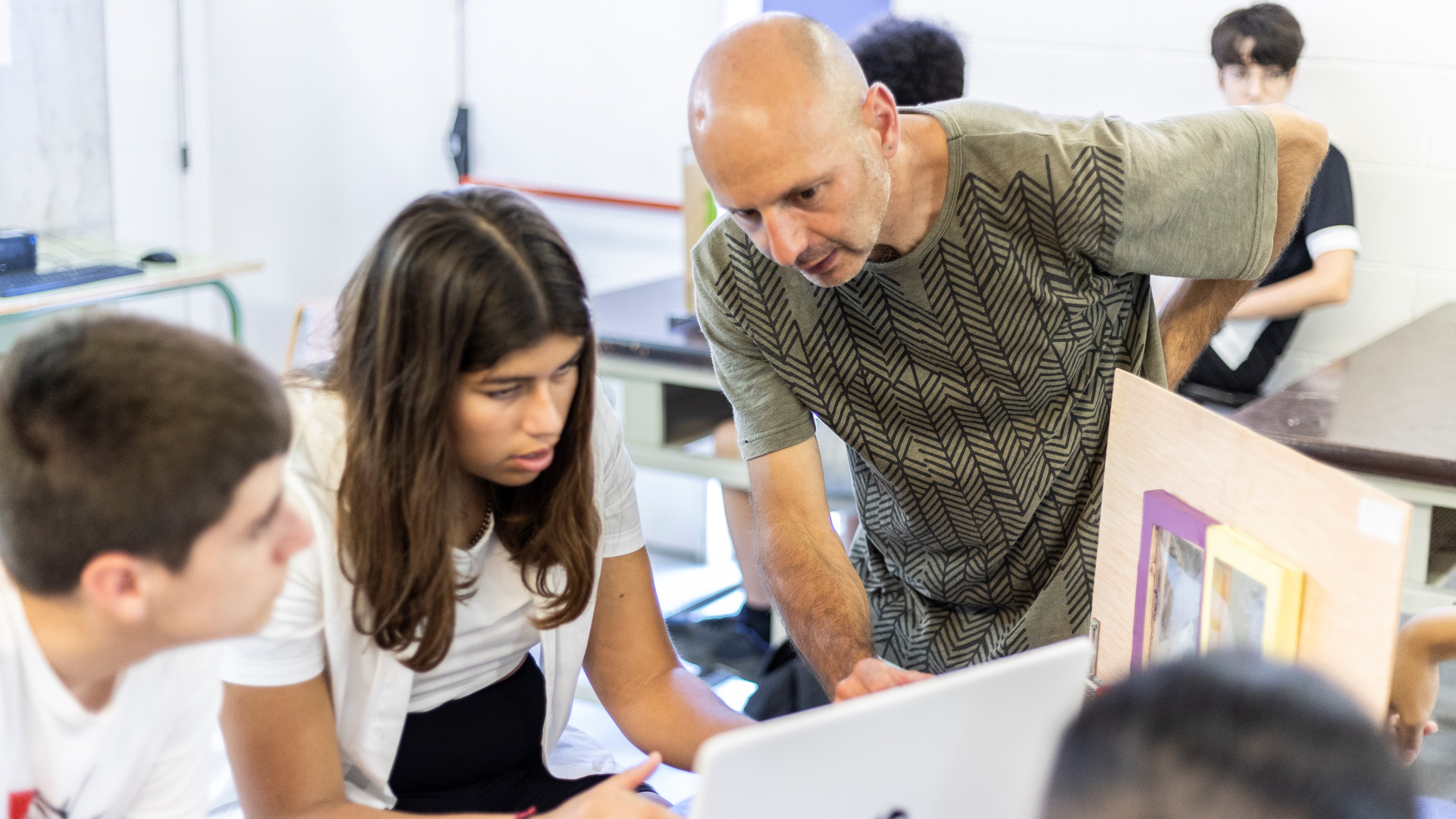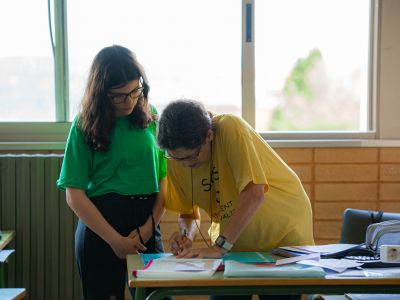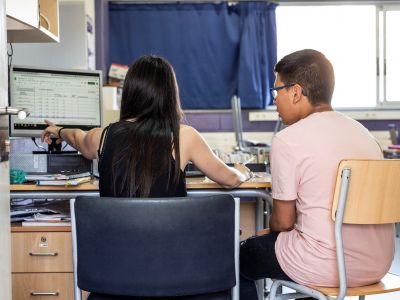Mentoring: the pillar of a committed Europe?
11/10/2022

Mentoring is a human chain that is not apparent at a simple glance but it brings together thousands of people all over the world. In French society – which is fragmented and particularly unequal with regard to education – thousands of people who would not have ever met of their own accord learn to get to know each other, to help one another and to walk the path of life together for a sometimes extended period of time lasting one or several years. Therefore, is mentoring the pillar of and catalyst for a “committed society”?
President Emmanuel Macron has taken this premise seriously; as a result, the French State invested 30 million euros on the European recovery plan in launching the ambitious mentoring development plan “1 young person, 1 mentor” in March 2021 which will enable the country to accelerate the number of mentees supported from 40,000 to 100,000.
The wheels are already in motion and AFEV holds a prominent position among other mentoring stakeholders who form part of a group in this field. Our goal is to increase the number of young people supported by our mentoring from 9,400 to more than 18,000.
How have we got this far?
AFEV was set up in the early 1990s with the aim of using the commitment of university students as a lever to combat inequalities, especially in education. Thirty years later, AFEV is the biggest university student mentoring network in France and Europe. More than 200,000 volunteer students have spent two hours a week supporting children and young people between the ages of 5 and 19 years with difficulties in school to enable them to regain their self-confidence and their desire to learn. Aside from homework, the mentors and the mentees work together to open the doors to the world of culture for the latter group and to plan out a future in higher education. They also cooperate on mobility and other issues.
One noteworthy feature of mentoring at AFEV is that it takes place in the home of the mentee so families are directly involved and benefit from the presence of the student mentor. A bond of trust is created giving parents peace of mind and helping them to feel legitimised with regard to their children’s education.
What impact does this have for mentees?
Having “models to follow” close by allows them to relax a little, to expand their world of opportunities and to increase their self-esteem and self-confidence: 81% of mentees feel better about themselves and 64% feel they have more confidence at school, particularly given the fact that their mentors are university students who informally allow them to envision themselves in a world they are mostly unfamiliar with – university life. 80% of AFEV mentees believe that their student mentor has helped them to gain a clearer idea about their professional or learning guidance plans.
However, the advantages of mentoring are not solely for mentees. Aside from an awareness of inequalities and the feeling of serving a purpose, mentors also develop capabilities, widely known as soft skills, which are characteristic of close interpersonal relationships such as those they engage in: communication, creativity, organisation, ability to get one’s ideas across, empathy, etc. These skills supplement their academic education and, at times, they are acknowledged in their syllabus. When it comes to the recognition of skills gained through mentoring, although there is a genuine interest among higher education stakeholders, there is still huge room for improvement.
What next?
Since mentoring is beneficial for both mentors and mentees, everyone agrees that it is necessary to promote its development. In France, not only has the State made a big financial investment, it has also innovated by creating this educational policy in conjunction with mentoring professionals. This is to help those bodies already delivering mentoring to be able to scale up whilst assisting organisations that have yet to make a start in doing so.
In order for mentoring to work, mentoring professionals are needed. The whole process of mobilising, training, informing and supervising thousands of mentors and young people cannot be carried out in an impromptu manner. The “1 young person, 1 mentor” plan has laid the foundations of an important era for promoting the emergence and professionalisation of mentoring. But this drive needs to be consolidated and made to last. Since they form part of a group, mentoring associations are involved in a dynamic focussed on the pooling of tools and the improvement of quality, working in particular to implement a seal of quality inspired by the approach taken by the Social Mentoring Network.
The dynamic of development has not just begun in France; rather, its scope is European, as illustrated by the Flemish programme for social integration mentoring for migrants and refugees or the mentoring programme for children with learning difficulties, recently launched by the Government of Catalonia in conjunction with the Social Mentoring Network, which AFEV Catalonia forms part of.
Mentoring stakeholders in France capitalised on the 2nd Mentoring Meeting, held on 19 January 2022, in order to make a plea in the presence of various ministers for the “right to mentoring” in the context of the French presidential election and the French Presidency of the EU Council, and indeed marking the European Year of Youth.
After a two-and-a-half-year-long worldwide social and health crisis, their ambition is to go beyond local and national experiences and to work together to develop a Europe-wide framework. This should allow mentoring to develop to the broadest extent and, on a European scale, provide every individual interested with the opportunity to become involved with everyone who needs mentoring. It is an ambition that is indeed within our reach.

